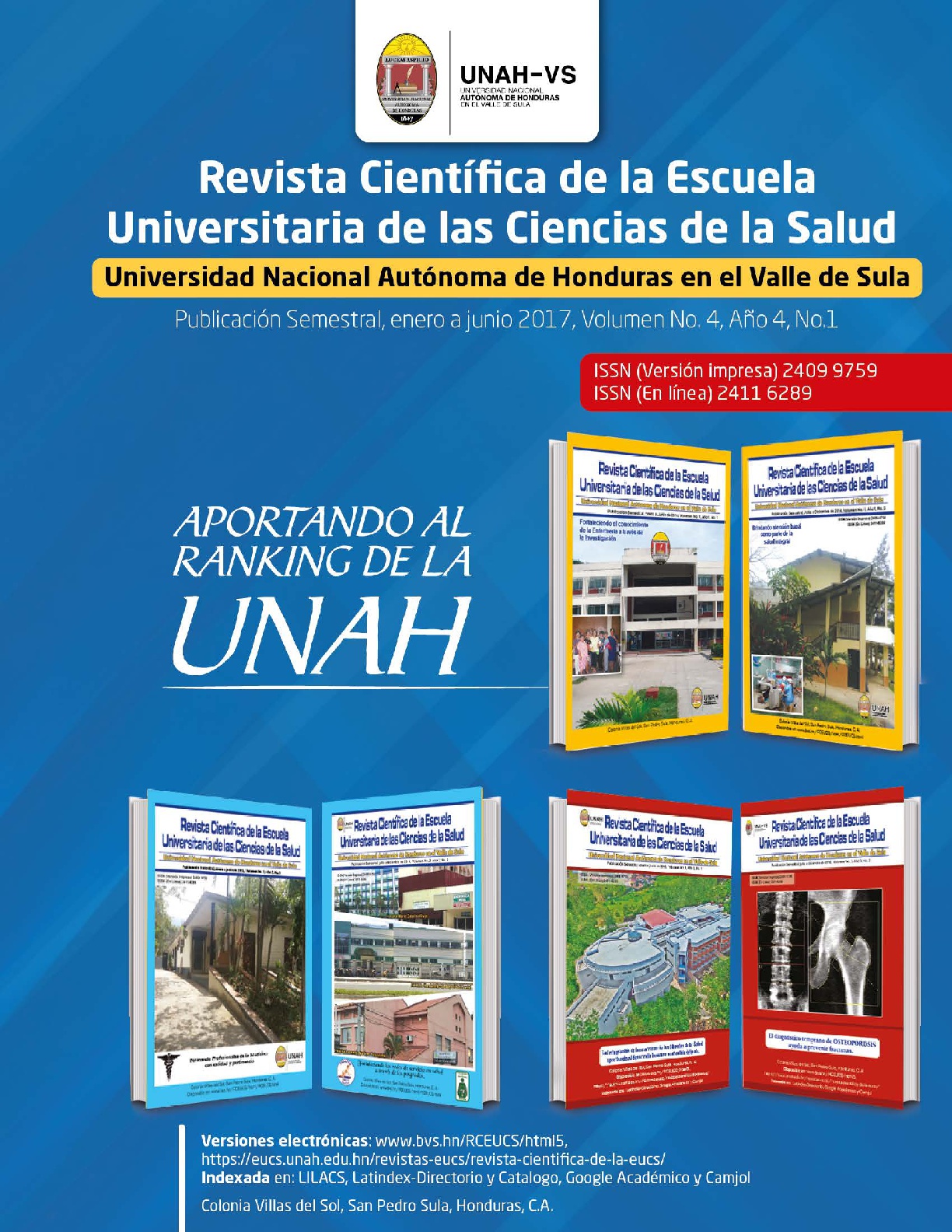ESTADO NUTRICIONAL EN ESCOLARES DE PRIMERO A SEXTO GRADO EN LA PAZ, HONDURAS
DOI:
https://doi.org/10.5377/rceucs.v4i1.7066Resumen
Un estado nutricional deficiente en la niñez incrementa el riesgo de muerte, inhibe su desarrollo cognitivo y afecta su estado de salud de por vida. Atender esta condición es indispensable para asegurar el desarrollo de la niñez y garantizar el desarrollo del país. Objetivo: Establecer el estado nutricional en niños escolares de seis a doce años que asisten a la escuela “Nuestra Señora la Merced”, La Paz, Honduras, durante el período de marzo - abril de 2016. Metodología: Estudio descriptivo de corte transversal, universo de 155 niños de primero a sexto grado, muestra 110 niños, índice de confianza 95%, probabilidad a favor 50% y porcentaje de error 5%. Previo consentimiento informado autorizado por tutores le- gales. Se utilizaron las tablas y guías de la OMS para valorar el estado nutricional de los niños. Resultados: De 110 estudiantes evaluados: 11 (10%) estaban emaciados, 6 (5%) obesos, 14 (13%) sobrepeso, 21 (19%) posible riesgo de sobrepeso, 58 (53%) tenían un adecuado estado nutricional. De los niños emaciados; 40% habían padecido enfermedades respiratorias, 30% chikungunya, 10% diarrea y 10% anemia. En todos los hogares de los niños emaciados los padres reciben un ingreso mensual menor al salario mínimo. Conclusiones: Los trastornos nutricionales siguen presentes en la niñez hondureña, con un aumento significativo de niños en posible riesgo de sobrepeso y obesidad, siendo estos los principales problemas en la actualidad de los escolares en nuestro estudio, sin embargo, todavía existen niños con emaciación.
Palabras clave
Desarrollo infantil, Desnutrición, Obesidad
Descargas
2771




